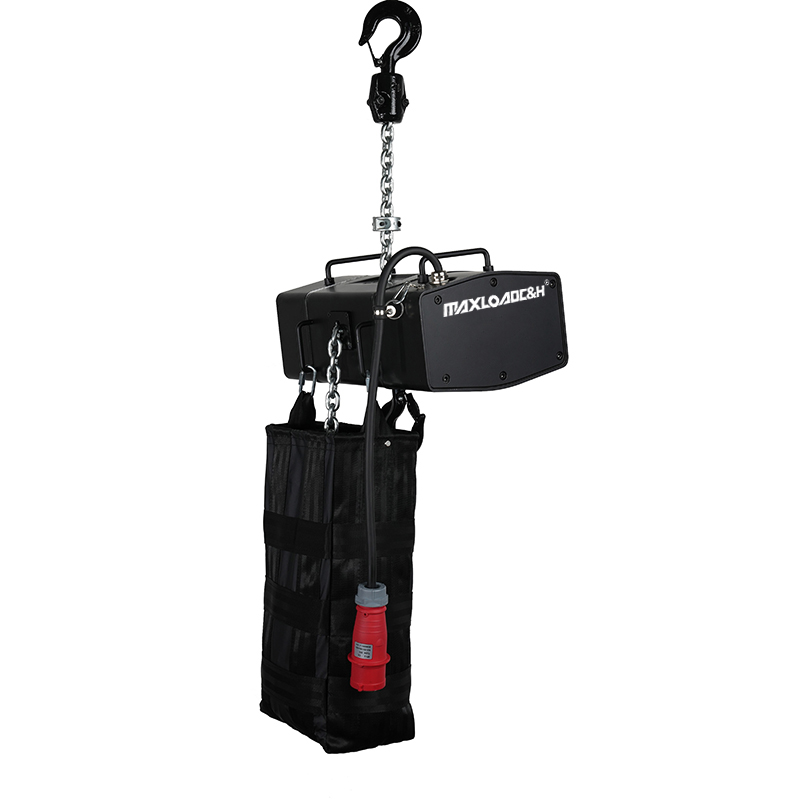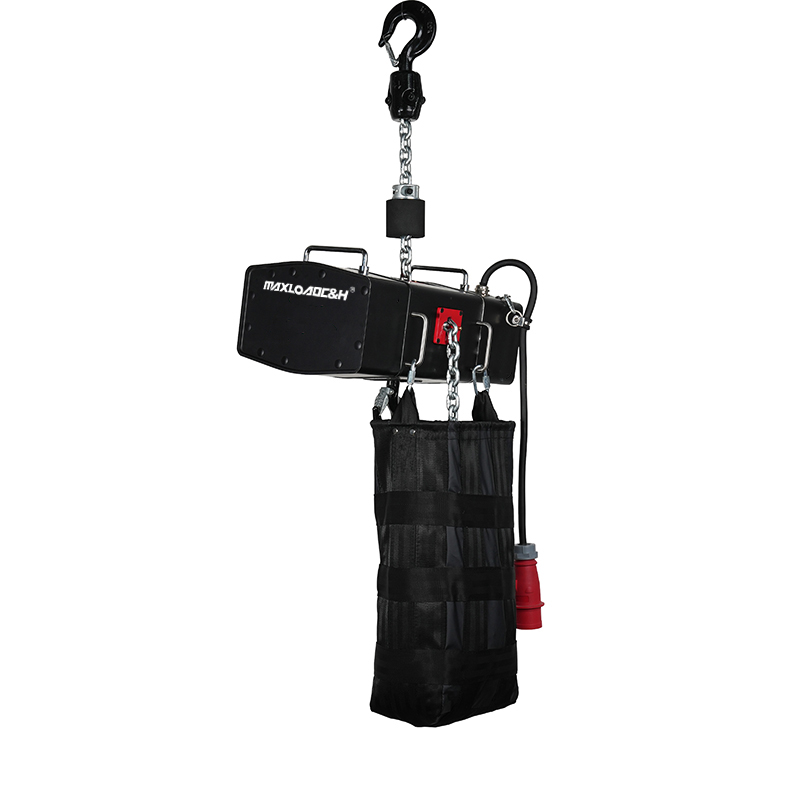Stage Electric Hoists: A Core Tool for Stage Equipment Hoisting
Stage electric hoists, also known as stage elevators, are chain-type electric lifting devices designed specifically for stage equipment hoisting. They play a key role in various performances, exhibition construction, and large-scale structure hoisting scenarios.
I. Product Types and Specifications
Stage electric hoists are available in three main models based on load capacity: 0.5T-2T, meeting the hoisting needs of stage equipment of varying sizes. They offer a variety of voltage options, ranging from 220V to 440V, for flexible adaptation to diverse power systems. They offer both CNC and manual control modes. The CNC mode allows for programmable synchronization of multiple units, while the manual mode facilitates flexible on-site operation.
II. Core Performance Advantages
Power System
A highly efficient and lightweight sealed aluminum motor housing is paired with a stamped steel structure, achieving a balance between lightweight and high strength. The asbestos-free brake system is not only environmentally friendly but also provides stable braking performance. The dual-brake design ensures operational safety.
Transmission System
A cycloidal reducer provides silent operation and smooth power transmission. Heat-treated steel chain guides and galvanized, rust-resistant chains ensure structural strength and extend service life. Adjustable screw limit switches allow for customized travel ranges, enhancing operational flexibility.
Safety Protection
Upper and lower limit switches automatically cut power when the hook reaches its limit position, preventing the chain from overtravelling. The high-strength safety hook deforms gradually without breaking when subjected to unexpected overloads, providing dual protection. Grease is sealed within the gearbox, effectively preventing oil droplets from penetrating the stage surface and keeping it clean.

III. Application Scenarios and Functions
Performances
In concerts, plays, and other performances, electric stage hoists use single or multiple CNC control boxes to adjust the cable length, enabling the precise raising and lowering of stage trusses, lighting, and sound equipment. Their low energy consumption helps reduce performance costs, and the black paint finish prevents glare, preventing interference with stage lighting effects.
Exhibition Construction
Suitable for structural construction of large exhibitions and expositions, synchronized control of multiple units ensures stable and safe installation. Its efficient operation shortens the construction cycle and improves exhibition preparation efficiency.
Film and Television Shooting
During film and television set construction, it provides precise lifting and lowering control, ensuring smoother set movement. The adjustable speed function supports both slow fine-tuning and rapid equipment lifting, meeting diverse filming requirements.
IV. Technical Principle and Operational Mechanism
Power Transmission
The electric motor, as the core power source, transmits power to a multi-stage gear reducer via a coupling. After three stages of reduction, it drives the hollow shaft, ultimately driving the reel. The reel raises and lowers cargo by winding a wire rope or chain. The chain drive utilizes a multi-link chain for high efficiency and safety.
Brake Control
When power is applied to the conical rotor motor, an axial magnetic pull is generated between the rotor and stator, releasing the brake pads for start-up. When power is removed, a spring resets the brake pads, pressing against the brake wheel, creating a mechanical brake. Dual-speed control, combining the auxiliary motor with the main motor, enables switching between fast and slow speeds to meet diverse operational requirements. Safety Protection
When the hook reaches the upper or lower limit, the flameout limiter pushes the push-pull rod via a guide rod to forcibly cut off the power supply, preventing over-limit operation. A low-voltage control button and handle enhance operational safety. The overload protection device monitors the load pressure via a relief regulating valve and a magnetic contact pressure gauge, ensuring safe operation.

V. Operating Instructions and Maintenance Points
Operating Instructions
Before the operation, check the brake sensitivity, the correct operation of the manual control button, any abnormal noise from the reducer, the tightness of the hook lock nut, and any wire rope defects. The operating track should be free of obstructions to ensure a clear working space.
Maintenance Points
Regularly check the chain for wear and replace aging parts promptly. Keep the gearbox lubricated to prevent damage due to oil depletion. Regularly test the control circuit to ensure stable signal transmission.Due to their efficient, safe, and precise performance, electric stage hoists have become an indispensable core piece of equipment for stage equipment hoisting. With continuous technological advancement, the application scenarios will continue to expand, providing more efficient and reliable solutions for the performance industry and fixed venue operations.



 0086 17717607077
0086 17717607077
 0086 (021) 5999 9072
0086 (021) 5999 9072
 market@chnhoist.com
market@chnhoist.com







